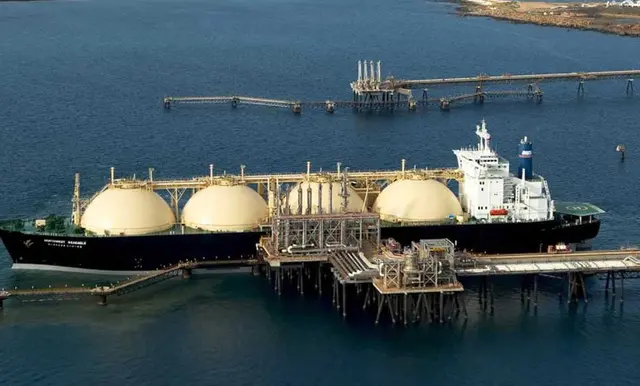Australia is on track to become one of the world’s
biggest exporters of liquid natural gas (LNG), thanks to an increase in
production and an abundance of the natural resource.
(A gas platform in the north of Western Australia /AFP Photo)
But
that huge focus on the global market has come at a cost to Australia’s
domestic consumers who pay some of the highest prices in the world.
Ask
most Australians what they think about the price they pay to use
natural gas in their homes, and you’ll find a common response.
"We
are still seeing potentially a 50% increase or more in gas bills,”
Energy Policy Lead of Public Interest Advocacy Centre, Craig Memery
said.
Here’s something else to
consider: despite Australia’s reputation as a relatively hot country,
most of the population lives in more temperate climates such as in
Sydney, where it gets cold enough over a several-month-period that
heating your home becomes a necessity.
(An onshore gas plant near Karratha in the north of Western Australia /AFP Photo)
"Every
winter, because I’m always cold we do have the gas heating on,
sometimes two gas heaters. However, we do have to sacrifice something
else, whether it’s one dinner for the month but we do have to sacrifice
something because of the cost around winter,” a natural gas user, Anne
Juresic said.
What makes that
rising price even harder for many people to accept is just how much of
the natural resource exists right under their feet.
"We
have got an abundance of natural gas, approaching something like 200
trillion cubic feet of natural gas in reserve,” the Resource Analyst of
Fat Prophets, David Lennox said.
About
five years ago, producers turned their attention to the export market
and began building multi-billion dollar processing facilities to convert
that gas into LNG.
An onshore gas plant near Karratha in the north of Western Australia /AFP Photo
By 2016, experts predicted that more than 60% of Australia’s LNG was exported overseas.
"Because
natural gas is being channeled toward LNG gas rather than into the
domestic market we are finding that Australia’s domestic market is
falling somewhat short of gas supplies,” Lennox said.
"For
large energy users, commercial energy users who are reliant on large
volumes of wholesale gas, their gas price has doubled or even tripled in
recent years as the gas export market was opened up,” Memery said.
Memery
said as the focus shifted to exports, no policy was put in place to
ensure reserves were available for Australia’s domestic market.
"No
government wants to interfere with the export market although the
commonwealth government has recently announced that they are prepared to
put a bit of a safety net in there in the event that prices get too
high looking at how gas could be exported and shipped,” Memery said.
The price of LNG has dropped recently because of a global oversupply.
 简体中文
简体中文

